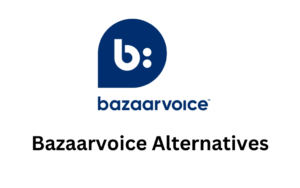Best Practices for Utilizing Tools for Knowledge Management
In an era where data is king, the ability to organize, manage, and access crucial information can have a significant impact on a company’s success. Tools for efficient knowledge management can help corporations streamline knowledge-sharing and decision-making processes, paving the way for success. Keep reading to explore more about knowledge management and the best tools to tap into this critical business resource.
Mastering the Art of Knowledge Management With Effective Tools
an office discussing knowledge management during a meeting
The art of knowledge management involves proper documentation, centralization, and distribution of information within an organization. Mastery of this art requires the incorporation of effective tools for knowledge management. These tools ensure that valuable information isn’t lost in emails or document folders, but is accessible and present at the point of need.
Efficient knowledge management tools can help streamline processes, reduce internal resource usage, and foster innovation through improved collaboration. Tools such as Upland Software allows team members to share knowledge with ease, breaking down silos, and creating a knowledge-sharing culture within the organization.
The use of powerful knowledge management tools allows businesses to unlock their full potential, providing them the platform to leverage their collective knowledge. With a consolidated view of information, decision-making becomes faster and more accurate.
Ultimately, mastering the art of knowledge management with effective tools paves the way for better communication, collaboration, and improved productivity within the organization.
Table of Contents
Understanding the Significance of Knowledge Management Tools
In the modern business landscape, knowledge management tools have risen to prominence for their ability to simplify information access and foster team collaboration. Their significance lies in upholding an organization’s integrity by ensuring that business knowledge remains within the firm, even when employees leave or retire.
Knowledge management tools ensure the continuity of organizational processes. They offer a centralized location for storing important documents, project information, and intellectual property, reducing the time and effort spent looking for lost or misfiled data.
Some tools go further by offering automation and artificial intelligence capabilities. These features can help analyze complex data sets, predict trends, and support informed decision-making processes, showcasing the transformative potential of knowledge management tools.
Altogether, understanding the value of these tools can help organizations strategize their knowledge management efforts and gain a competitive edge in their industry.
Selection of the Right Tools for Effective Knowledge Management
Alt text: A woman in an office researching knowledge management on her computer
Selecting the right tools for effective knowledge management depends largely on the organization’s unique needs and objectives. Whether it’s for communication, collaboration, or document management, the tool chosen should enhance information flow and improve overall operational efficiency.
A consideration during the selection process is the user experience. The ideal tool should be easy to use, allowing for a quick and seamless adoption by team members. Also, it should facilitate integration with other tools and systems already in use within the organization, to avoid disruption.
Choosing a tool with customization features can also be beneficial. A customizable knowledge management tool can adapt to the changing needs of an organization, ensuring that it remains effective and relevant years down the line.
Lastly, it’s important to consider support and maintenance when selecting a tool. Reliable customer service and regular updates are crucial for the continuous effectiveness of any knowledge management tool.
Overall, the benefits of efficient knowledge management tools are numerous: improved collaboration, faster decision-making, and enhanced security of intellectual property, to mention a few. By selecting, implementing, and evaluating these tools in a strategic manner, businesses can maximize their benefits and ensure sustainable success.







